How To Use Honey For Eyes – 13 Useful Ways
Understand the therapeutic properties of this liquid gold to help improve your vision.
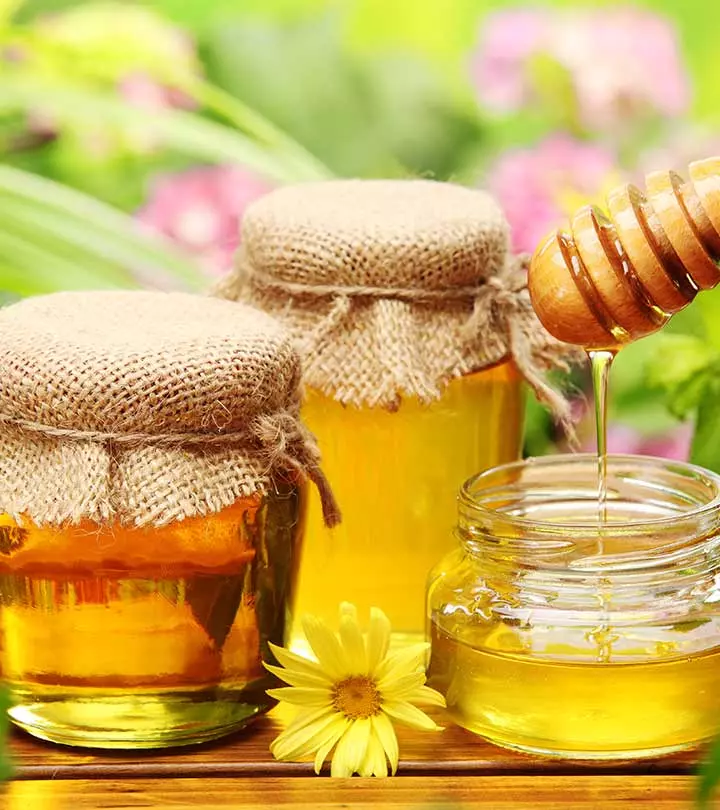
Image: Shutterstock
Honey is known for its many therapeutic and medicinal properties! While its uses and benefits for skin, gut, and overall immunity are well known, do you know that you can use honey for eyes as well? Yes, you got that right! Honey not only adds that subtle sweetness to your food and enriches you with many important nutrients, but it also helps improve your vision! Not only that, it helps reduce inflammation and eye infections as well! This natural substance has a unique composition that can help with eye problems and make your eyes healthier. Read on to know how you can use honey for managing eye diseases, so that the next time you are dealing with any eye redness, itch, and irritation, you can just swab a bit of honey to help you get some instant relief!
 Know Your Ingredient: Honey
Know Your Ingredient: HoneyWhat Is It?
Sweet and sticky substance prepared by honey bees.
What Are Its Benefits?
Good for eye health, may help in wound healing, and has soothing properties.
Who Can Use It?
It is safe to use for adults except for those who take anticoagulant medication and children above 1 year of age.
How Often?
It can be consumed daily in moderation.
Caution
Avoid honey if you are allergic to pollen.
In This Article
Honey – A Brief
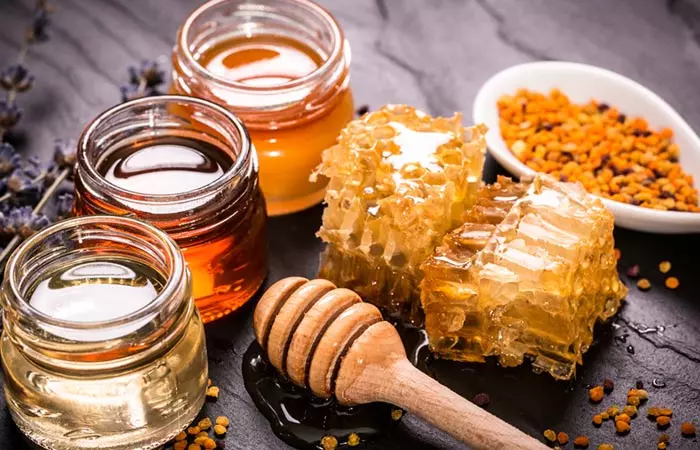
We all love honey, right? And this love is shared by most people around the world. Honey has been a popular and essential part of Ayurvedic medicine for ages. Also known as ‘Shahad‘ in Hindi, ‘Tene‘ in Telugu, and ‘Madha‘ in Marathi, it owes its sweetness to the presence of monosaccharidesi Simple sugars that are colorless, water-soluble, and crystalline solids, and are also the basic units of carbohydrates. , glucose, and fructose. Its shelf life extends up to thousands of years, making it an essential part of our kitchen.
Apart from imparting flavor to food, honey also helps in curing many health ailments. The most important, yet most surprising of them is its effect on our eyes.
If you go through the pages of ancient history, you’ll find that honey was used for curing several eye disorders (1). So, it is not surprising that honey was extremely popular amongst the Egyptians and Indians. Modern researchers have only reinforced this fact.
Honey may be an effective remedy for many vision issues, such as eye infections, irritation, conjunctivitis, glaucoma, and trachomai A contagious bacterial infection caused by the bacterium Chlamydia trachomatis that may lead to blurred vision and blindness. , because of its wound healing and soothing properties. If consumed regularly, honey can prevent eye cataracti The condition where the eyes' natural lens becomes cloudy, causing blurry and hazy vision, especially in aged people. to a large extent. Impressive, isn’t it?

Key Takeaways
- Honey is considered a useful remedy for conditions like blepharoconjunctivitis, and corneal ulcers of inflammatory and traumatic origin.
- Apply honey over closed lids to give some relief to your tired eyes.
- An eyewash consisting of honey and warm water may help treat dry eyes.
- Honey drops are also considered an effective remedy for conjunctivitis.
- Make sure the honey is not acidic before using it as an eyedrop or applying it.
Benefits Of Honey For Eyes
- Manages Eye Ailments
- Refreshes Tired Eyes
- Reduces Dry Eye Syndrome
- Prevents Macular Degeneration
- Protects Your Eyes From Glaucoma
- Keeps Your Vision Intact
- Relieves Conjunctivitis
- Reduces Eye Wrinkles
- Treats Sore Eyes
- Heals Eye Infection
- Works As An Optic Nerve Tonic
- Improves Eye Lens Protein Oxidation
- Can Help In Lightening Eye Color
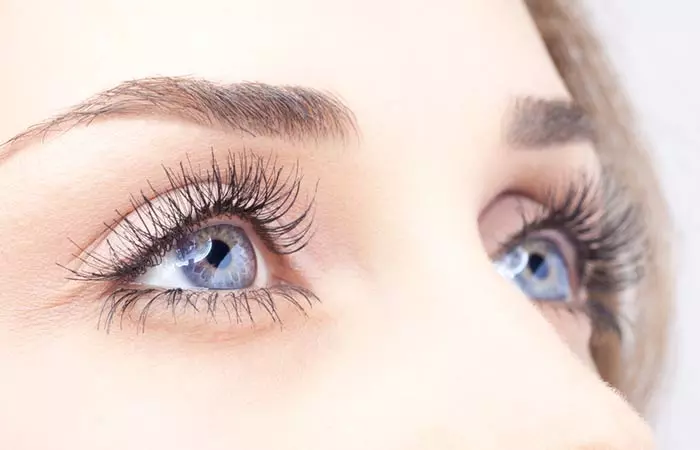
1. Manages Eye Ailments
The good news is, honey’s benefits are not limited to skin and hair alone. Fresh and untreated honey is often used as a herbal medicine for managing a wide range of eye-related issues.
Honey is the best cure for eye diseases such as blepharoconjunctivitis, corneal ulcers of inflammatory and traumatic origin, and ulcerative blepharitisi A common eye inflammation where the oil glands in the eye become dry and cause red, itchy, crusty, and dry eyes. because of its antibacterial properties (2).
For eye troubles, such as dimness of the cornea, fresh comb honey is probably the best option. If the cataract is in the initial stage, fresh comb honey is again an ideal remedy.
2. Refreshes Tired Eyes
Do you feel exhausted after sitting for long hours in front of the computer? If yes, honey is the best thing for relieving your strained eyes.
Apply honey over closed eyelids to improve eyelid health. Take rest and relax with some good music playing in the background. After half an hour, wash off the honey with cold water. Your eyes will feel refreshed (3).
3. Reduces Dry Eye Syndrome

In today’s electronic age, many of us fall prey to dry eyes.
Dry eye syndrome is a common condition in which the eye isn’t able to supply the required amount of tears needed for its lubrication. Usually, the sufferers face a variety of symptoms, including pain, itchiness, reddening of the eye, and blurring of vision.
This condition can easily be treated with the help of honey (4). We all know the benefits of using honey for glowing skin, but now you can use it to treat a dry eye as well. All you need to do is to make an eyewash with honey and warm water and wash your eyes thoroughly with it. Do it before sleeping every alternate night and see the effects.
4. Prevents Macular Degeneration
As we age, we find our vision getting weaker and weaker. This blurred vision is associated with macular degeneration, which can easily be prevented with the help of honey (5).
This sweet liquid is full of antioxidant properties that help in keeping our eye muscles healthy and working in the best way. So, if you are 25 or 50, be assured of good eyesight with the regular usage of honey.
5. Protects Your Eyes From Glaucoma
Glaucoma is a condition in which there is fluid build-up in the front part of the eye. This build-up increases the intraocular pressurei The fluid pressure inside the eye created by the continual renewal of fluids, which also helps in the evaluation of eye diseases. in the eye, and can even lead to permanent damage to our optic nerves, resulting in vision loss.
Many studies have stated that using honey as an eye drop regularly reduces the possibility of occurrence of this disease by 50% (5).
6. Keeps Your Vision Intact
It goes without saying that honey is super effective in protecting our vision health (5). This is because apart from being rich in antioxidants, it also has various essential vitamins and minerals like zinc.
We need an adequate amount of zinc in our body for the proper functioning of our optical nerves. Use honey eye drops regularly to protect your vision health.
7. Relieves Conjunctivitis
We all, at some point in time or the other, fall victim to the pink eye and are forced to wear sunglasses to prevent it from spreading.
This condition is even more prevalent in small children, making them all agitated and irritated from watery eyes and itching.
Well, several studies have pointed out that honey eye drops may relieve allergic conjunctivitis and maintain ocular surface health (5).
8. Reduces Eye Wrinkles
We all afraid of signs of aging that throw us off the hook even before we start feeling old. Thankfully, apart from treating eye disorders, honey is also amazing in reducing wrinkles and fine lines around our eyes (9).
You just need to apply some honey on your closed eyes and let it rest for 15 minutes. Then, wash it off with warm water.
 Quick Tip
Quick Tip9. Treats Sore Eyes
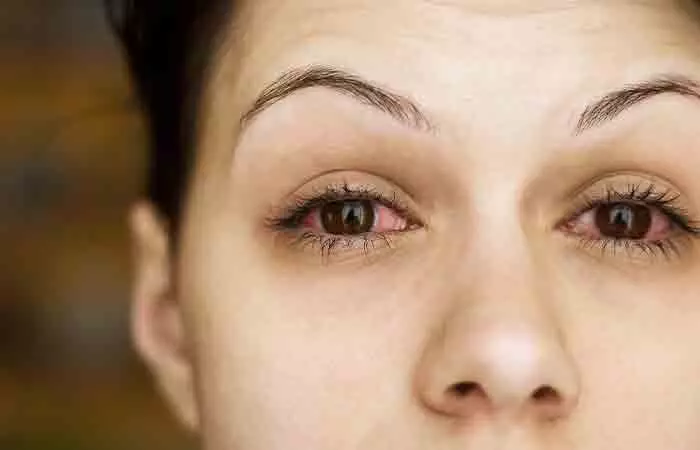
From staying up the entire night to being a victim of an eye infection, there are many reasons that lead to sore eyes. However, you can get rid of this puffiness by using honey (6). Consume honey regularly, and you will be okay in no time.
10. Heals Eye Infection
Have you ever used honey for eye infection? Honey is coined to be the best remedy for curing all sorts of eye infections, whether they are caused due to bacteria, virus, or any other microorganisms. As we already know, honey has antibacterial properties, which make it essential in the cure of eye infections (7).
All you need to do is mix equal quantities of honey and boiling water and apply this solution on your eye with the help of a cotton ball. Do it daily for best results.
11. Works As An Optic Nerve Tonic
Honey can also act as an optic nerve tonic (12). It helps in increasing the production of nitric oxide that is required for efficient blood flow to the optic nerves. So, start using honey now to ensure better vision in the future.
12. Improves Eye Lens Protein Oxidation
Whether you add it to food or use it as an eyewash, utilizing honey on a regular basis can improve eye lens oxidation, which provides you with long-lasting good vision (13).
13. Can Help In Lightening Eye Color
It might come as a surprise, but it has been proved time and again that you can use honey to lighten your eye color, that too naturally.
To lighten eyes with honey, you will need to have some patience and the correct ingredients in proper proportions. Use pure honey and water for eyes to obtain the best results.
What You Need
- 1 drop of raw honey
- 5 drops of warm bottled water
What You Need To Do
- Add a drop of honey in five drops of water and mix well. You can also take a higher amount of both the ingredients in the ratio of 1:5 for storage purposes.
- Store the solution in a clean bottle. Put three drops of this solution every morning and evening in your eyes to light them.
Make sure you store the solution in a cool and dark place.
A blogger shares her experience of using raw and organic honey, typically at a 50/50 ratio with hot water, as an eye drop. She writes, “So the honey method is best used on brown eyes who want to go to a lighter shade of brown (i).” However, she emphasizes that “the honey method is not for those who want quick results….For instance, my eyes were dark brown. I’ve been doing the honey method on and off for a little over a year now.. my eyes are a nice medium brown.”
Caution: Putting anything in your eyes without proper consultation can lead to loss of vision. So, consult your doctor before taking this big step.
Manuka honey, a type of honey from New Zealand, has been gaining popularity for its various therapeutic properties. Find out in the next section how it benefits the eyes.
Manuka Honey For Eyes
Manuka honey may help alleviate dryness in the eyes by reducing the evaporation of the tear film on the eyes. Its natural antibacterial and anti-inflammatory properties may also support overall eye comfort and health (8). This natural remedy is being explored as an alternative to commercial eye drops, offering a potential solution for individuals seeking relief from dry eye-related discomfort. However, consult with a healthcare professional before using Manuka honey products for eye issues to minimize any negative effects like eye irritation or discomfort.
Check out the next section for different ways to incorporate honey into your eyecare routine.
How To Use Honey For Eyes
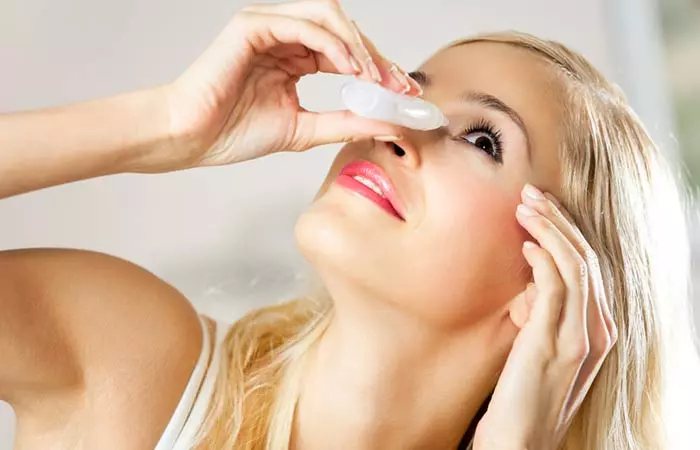
The uses of honey are varied. It is popular as an external application as well as used for internal consumption. We are acquainted with many foods where honey is an essential ingredient. However, it is important to know how one may apply this liquid gold externally as well.
1. Eyewash
You need a teaspoon each of honey and warm bottled water. Dissolve honey in the warm water and let it cool down for some time. You may also refrigerate it for faster cooling. Use the solution as an eyewash when it is cool.
2. Eye Drops
For making honey eye drops, you should always go for fresh comb honey. Dissolve this honey well in the proportionate amount of distilled boiled water. Use the solution twice or thrice a day, depending on its density.
Tip: While you make the honey eye drops at home, you should always remember not to store the solution for more than a week. You can make the solution on a regular basis. Do not worry if you experience an itching sensation immediately after applying the drops. This burning sensation is normal, and it will cool down gradually.
 Quick Tip
Quick Tip3. Topical Application
For making a soothing and relaxing eye mask, you can use egg white and vitamin E gel along with honey.
For the first mask, mix a teaspoon of honey with 2-3 drops of lemon juice and egg white and apply it under your eyes. Wash it after 10-15 minutes.
Put a tablespoon of vitamin E gel and a teaspoon honey in a small container and whisk well. Use this as an eye mask thrice a week for best results.
A Word Of Caution
Our eyes are really precious. Hence, we need to look out for all the possible risks associated with any product we put in our eyes, and the same goes for honey. Let’s take a look at what you need to consider before using honey for eyes:
- If you have any previous allergy to pollens and other bee-related sensitivity, avoid using honey in your eyes. It can aggravate the infection and cause temporary loss of vision.
- Many types of honey can be fairly acidic (pH 3.4-6.1), so it can cause serious discomfort in your eyes. Hence, make sure that the honey you are using is not acidic.
- Using honey that is not high quality or improperly diluted can cause problems like irritation or discomfort. To avoid such problems, make sure the honey is organic and pure and comes from a trusted place.
Infographic: Amazing Benefits Of Honey For Eyes
Honey is not just one of the popular natural nutritive sweeteners, it has wonderful benefits for the eyes- the antibacterial properties of honey help in managing many eye ailments. While there is a long list of honey benefits, there are some amazing benefits of it you should be aware of before using. Check out the infographic below to learn about some amazing benefits of honey for the eyes.
Some thing wrong with infographic shortcode. please verify shortcode syntax
Honey is a natural sweetener known for its several medicinal properties. It has been used as a treatment option for many eye disorders. It has anti-inflammatory properties and exhibits soothing and antimicrobial effects that help improve eye health. Topical application of honey may reduce irritation and inflammation in your eyes. It may also refresh tired eyes, treat dry eyes, reduce the risk of macular degeneration, protect your eyes from glaucoma, treat sore eyes, and heal eye infections. However, if you are allergic to pollens, avoid using honey in your eyes.
Frequently Asked Questions
Is honey good for dark circles?
Yes, honey is good for reducing dark circles. Apply a little amount of honey around your eyes before going to sleep. You may wash it off after 15 minutes or leave it on overnight.
Is raw honey good for eye bags?
Honey has anti-inflammatory, skin-soothing, and healing properties. It also contains powerful antioxidants that may help reduce swelling and possibly help relieve eye bags (1). However, further research is needed to confirm these claims.
Can I use milk and honey for my eyes?
Yes. Honey and milk are a good combination for the skin, as studies have shown that this mixture may boost skin healing processes (14). Honey can soothe sore and tired eyes, while milk may aid in treating dry eyes (15).
Illustration: How To Use Honey For Eyes - 13 Useful Ways
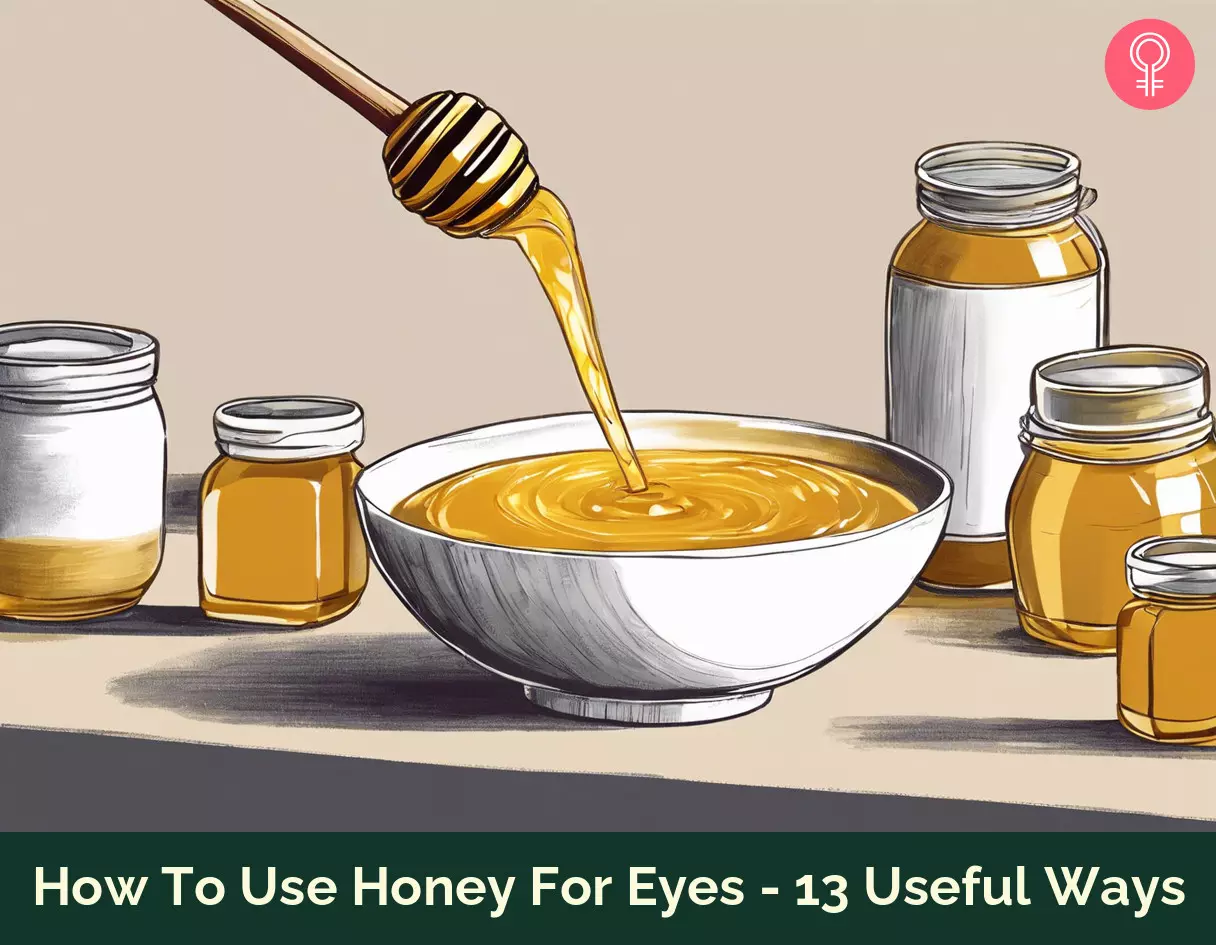
Image: Stable Diffusion/StyleCraze Design Team
Discover the amazing benefits of Manuka honey eye drops! Watch this video to learn how honey can help reduce inflammation, improve eye health, and more!
Personal Experience: Source
StyleCraze's articles are interwoven with authentic personal narratives that provide depth and resonance to our content. Below are the sources of the personal accounts referenced in this article.
i. Return of the Honey Eye Drop Experimenthttps://missegann.blogspot.com/
References
Articles on StyleCraze are backed by verified information from peer-reviewed and academic research papers, reputed organizations, research institutions, and medical associations to ensure accuracy and relevance. Read our editorial policy to learn more.
- Medicinal and cosmetic uses of Bee’s Honey – A review
https://www.ncbi.nlm.nih.gov/pmc/articles/PMC3611628/ - The use of topical honey in the treatment of corneal abrasions and endotoxin-induced keratitis in an animal model
https://pubmed.ncbi.nlm.nih.gov/21812661/ - Medicinal and cosmetic uses of Bee’s Honey – A review
https://www.ncbi.nlm.nih.gov/pmc/articles/PMC3611628/ - Honey-Related Treatment Strategies in Dry Eye Disease
https://www.ncbi.nlm.nih.gov/pmc/articles/PMC10222400/ - Therapeutic Potential of Honey and Propolis on Ocular Disease
https://www.ncbi.nlm.nih.gov/pmc/articles/PMC9696375/ - A Double Blind Clinical Trial on the Efficacy of Honey Drop in Vernal Keratoconjunctivitis
https://www.ncbi.nlm.nih.gov/pmc/articles/PMC3953621/ - Honey: its medicinal property and antibacterial activity
https://www.ncbi.nlm.nih.gov/pmc/articles/PMC3609166/ - Effect of a formulated eye drop with Leptospermum spp honey on tear film properties
https://bjo.bmj.com/content/104/10/1373 - Evaluation and comparison of the effect of honey milk and combination of honey–milk on experimental induced second-degree burns of Rabit
https://www.ncbi.nlm.nih.gov/pmc/articles/PMC7113970/ - Effect of human milk as a treatment for dry eye syndrome in a mouse model
https://www.ncbi.nlm.nih.gov/pmc/articles/PMC5017541/
Read full bio of Dr. Vignesh Devraj
Read full bio of Tanya Choudhary
Read full bio of Ravi Teja Tadimalla
Read full bio of Moksha Gandhi





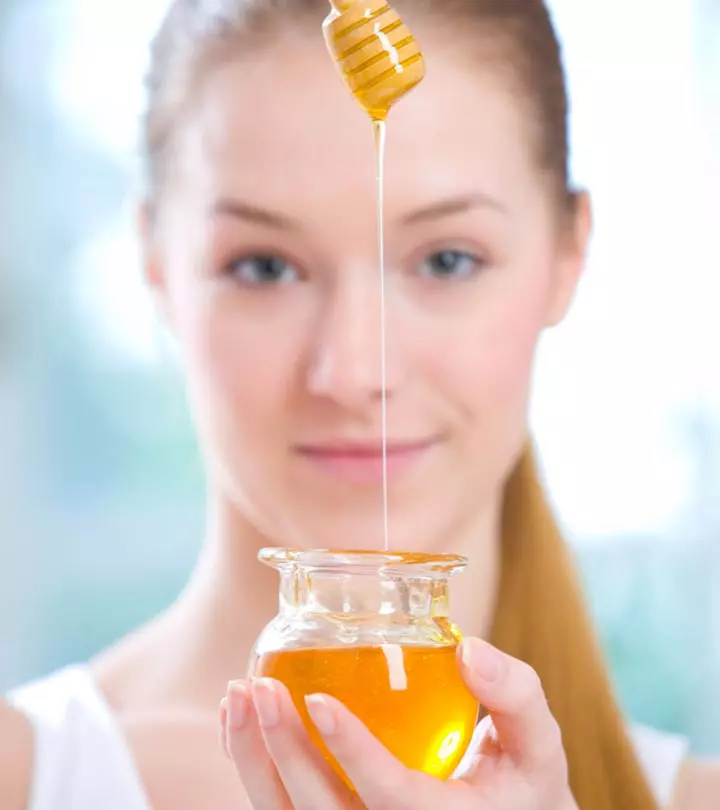
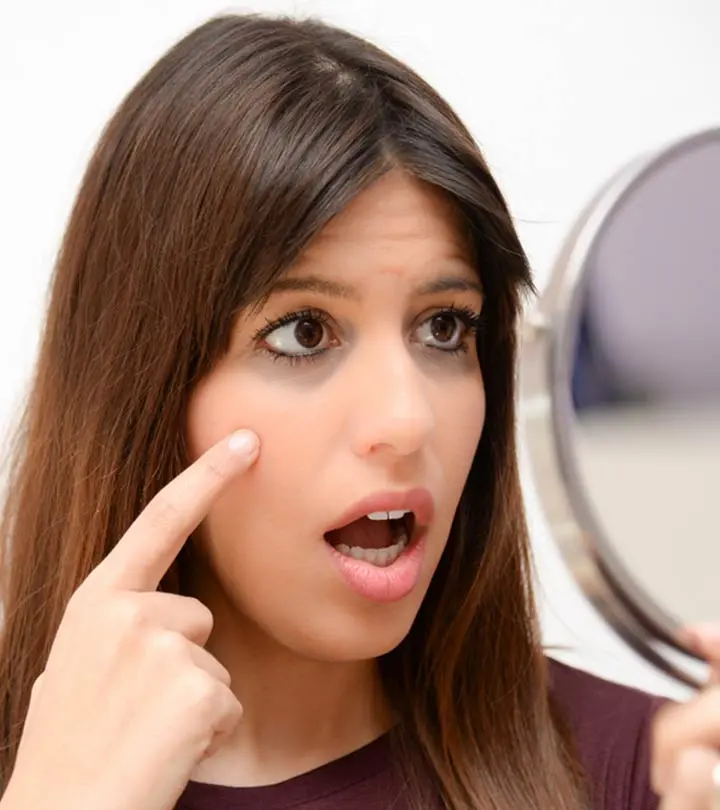
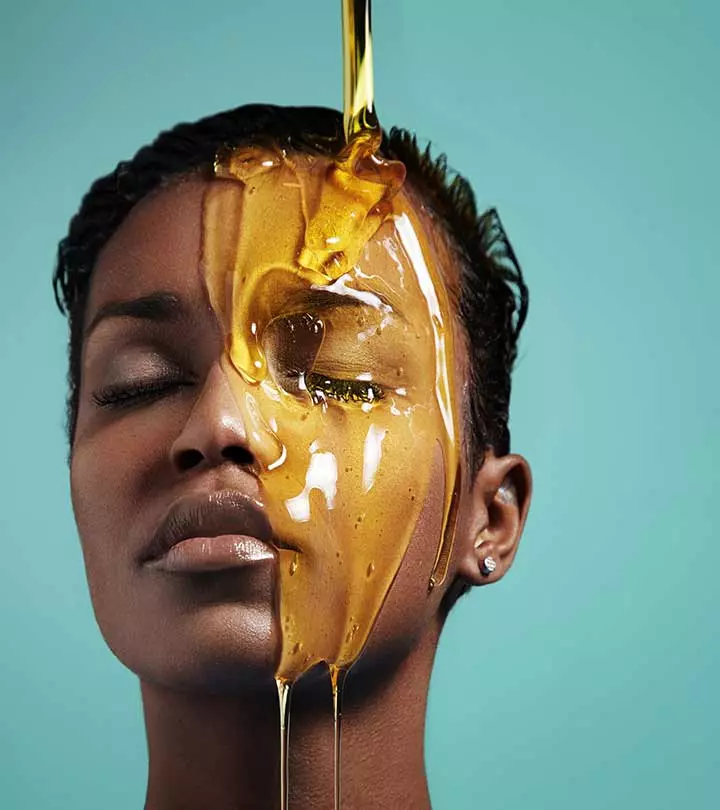



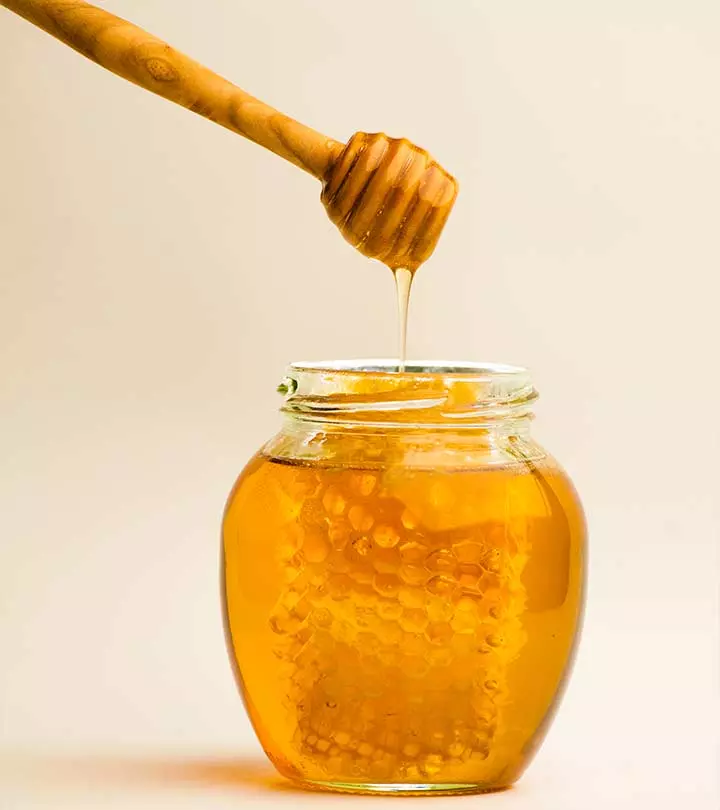
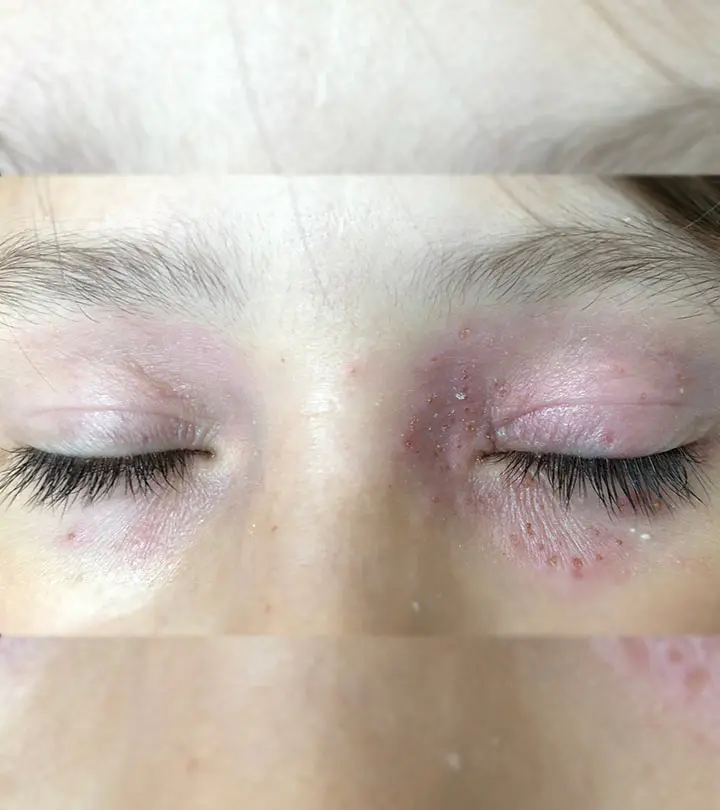
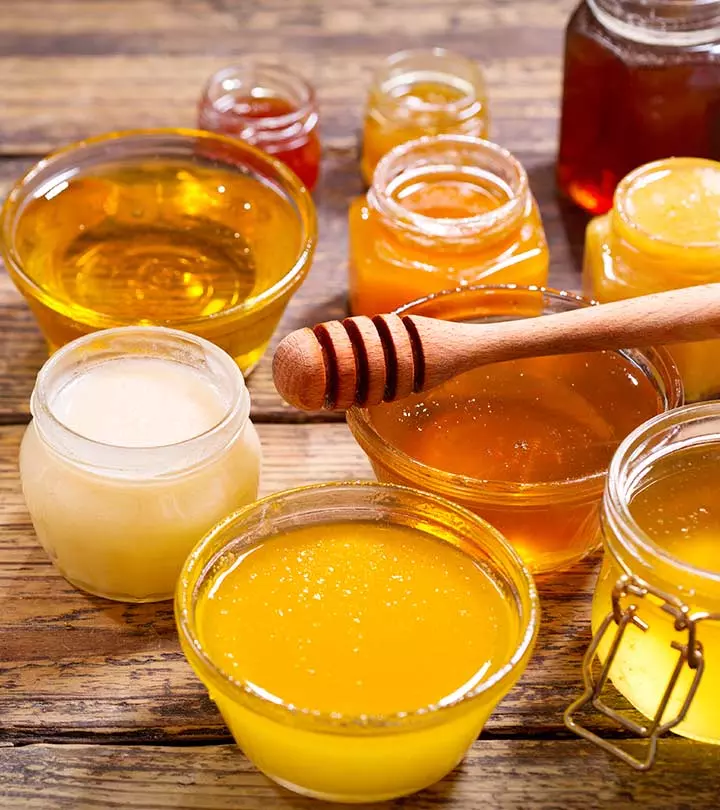
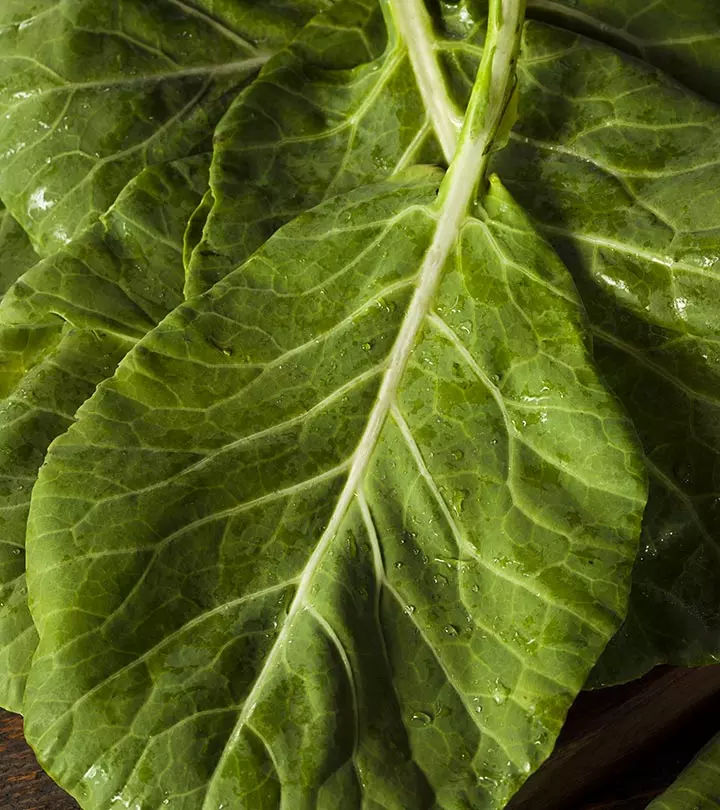

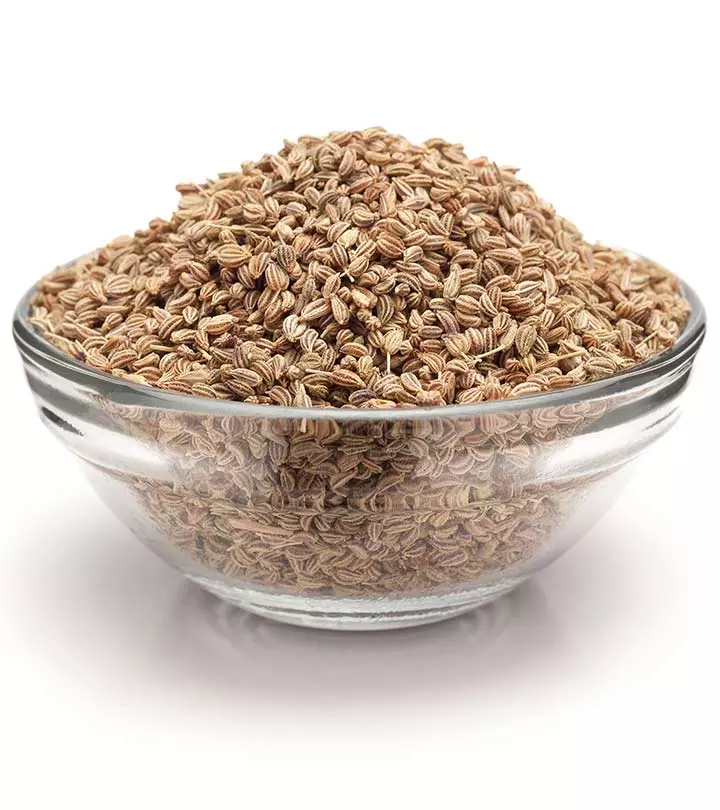



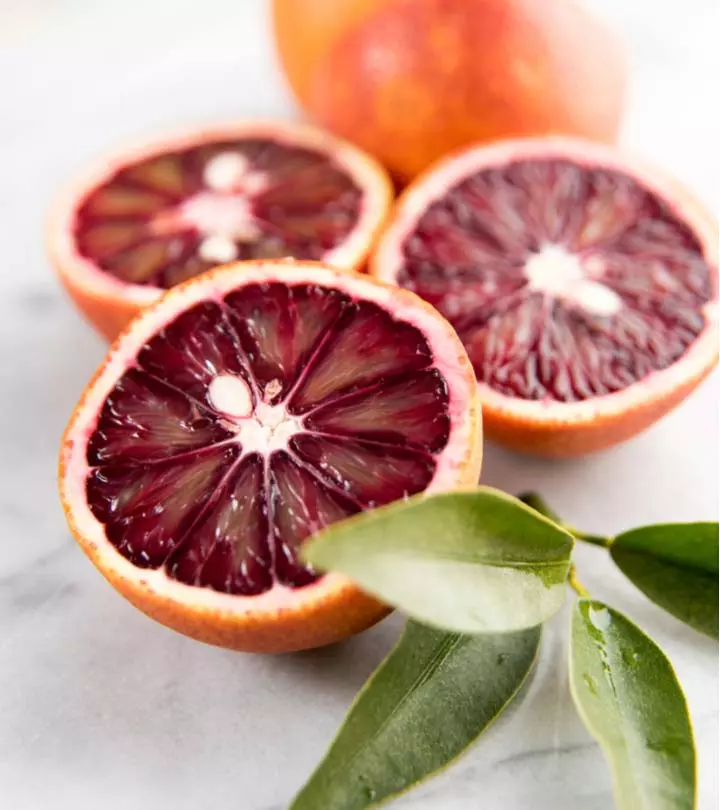

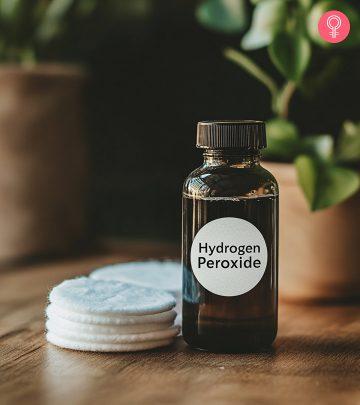
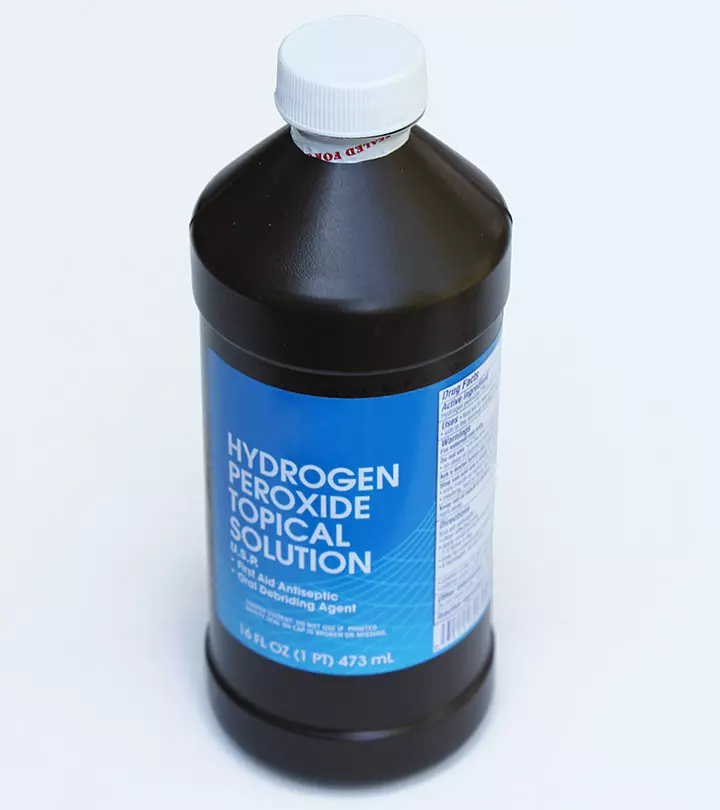


Community Experiences
Join the conversation and become a part of our empowering community! Share your stories, experiences, and insights to connect with other beauty, lifestyle, and health enthusiasts.